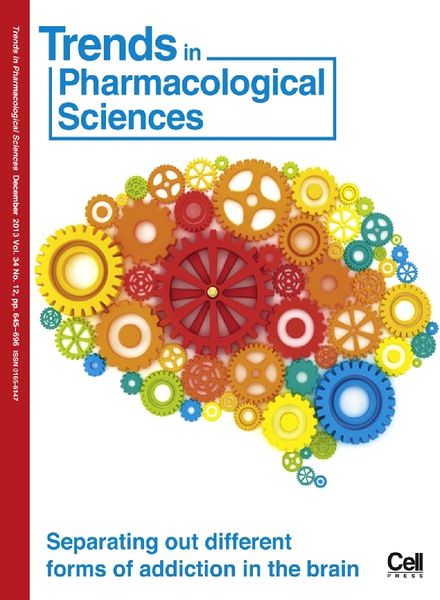“Medical Marijuana Inc Announces Positive Developments in Recent Studies Using Cannabidiol (CBD) Compound; NBC News, ABC News and Huffington Post Report California Pacific Medical Center’s Findings That CBD Stops Metastasis in Aggressive Cancers
SAN DIEGO, May 28, 2013 (GLOBE NEWSWIRE) — Medical Marijuana Inc (OTC Pink:MJNA) is pleased to inform shareholders and the general public of recent developments in the research involving Cannabidiol (CBD) and other Phyto-cannabinoids.
The Following is taken from a Huffington Post interview with Dr. McAllister and Dr. Desprez:
A pair of scientists at California Pacific Medical Center in San Francisco has found that a compound derived from marijuana could stop metastasis in many kinds of aggressive cancer, potentially altering the fatality of the disease forever.
“It took us about 20 years of research to figure this out, but we are very excited,” said Pierre Desprez, one of the scientists behind the discovery, to The Huffington Post. “We want to get started with trials as soon as possible.”
The Daily Beast first reported on the finding, which has already undergone both laboratory and animal testing, and is awaiting permission for clinical trials in humans.
Desprez, a molecular biologist, spent decades studying ID-1, the gene that causes cancer to spread. Meanwhile, fellow researcher Sean McAllister was studying the effects of Cannabidiol, or CBD, a non-toxic, non-psychoactive chemical compound found in the cannabis plant. Finally, the pair collaborated, combining CBD and cells containing high levels of ID-1 in a petri dish.
“What we found was that his Cannabidiol could essentially ‘turn off’ the ID-1,” Desprez told HuffPost. The cells stopped spreading and returned to normal.
“We likely would not have found this on our own,” he added. “That’s why collaboration is so essential to scientific discovery.”
Desprez and McAllister first published a paper about the finding in 2007. Since then, their team has found that CBD works both in the lab and in animals. And now, they’ve found even more good news.
“We started by researching breast cancer,” said Desprez. “But now we’ve found that Cannabidiol works with many kinds of aggressive cancers–brain, prostate–any kind in which these high levels of ID-1 are present.”
Desprez hopes that clinical trials will begin immediately.
“We’ve found no toxicity in the animals we’ve tested, and Cannabidiol is already used in humans for a variety of other ailments,” he said. Indeed, the compound is used to relieve anxiety and nausea, and, since it is non-psychoactive, does not cause the “high” associated with THC.
While marijuana advocates will surely praise the discovery, Desprez explained that it’s not so easy as just lighting up.
“We used injections in the animal testing and are also testing pills,” he said. “But you could never get enough Cannabidiol for it to be effective just from smoking.”
Additional Information:
Dr. McAllister & CBD Research
Dr. Sean McAllister says that he is ready to begin testing CBD on humans to evaluate anti-cancer properties. Dr. McAllister and colleague Pierre Desprez, PhD from California Pacific Medical Center have previously mentioned, “Cannabidiol offers hope of a non-toxic therapy that could treat aggressive forms of cancer without any of the painful side effects of chemotherapy.” “We found that this one compound, CBD, had a specific effect on metastatic cancer cells, very aggressive tumor cells. CBD in animal studies has been used to ‘switch off’ a specific gene regulator.” Dr. McAllister explains: “We find when you treat with CBD, you down regulate the expression of this protein and that inhibits the disease process.” Dr. McAllister and Dr. Desprez have developed a synthetic version of CBD, which they say targets a specific gene in the body related to the spread of cancer (metastasis). Article: http://abclocal.go.com/kgo/story?section=news/health&id=9057615
Additional Cannabidiol Information
ABC News-
http://abclocal.go.com/kgo/story?section=news/health&id=9057615
Huffington Post-
http://www.huffingtonpost.com/2012/09/19/marijuana-and-cancer_n_1898208. html?ncid=edlinkusaolp00000003&ir=Weird%20News
US. National Cancer Institute
http://www.cancer.gov/cancertopics/pdq/cam/cannabis/healthprofessional/p age4
Additional Dr. McAllister Publications
http://www.ncbi.nlm.nih.gov/pubmed/?term=Sean%20McAllister
Additional Published Material on Cannabidiol (CBD)
http://www.ncbi.nlm.nih.gov/gquery/?term=CANNABIDIOL”
More: http://online.wsj.com/article/PR-CO-20130528-906109.html


1942-7611/asset/olalertbanner.jpg?v=1&s=4b27d6a6bed6b58a9935efe70e4f95efc39146bd)


